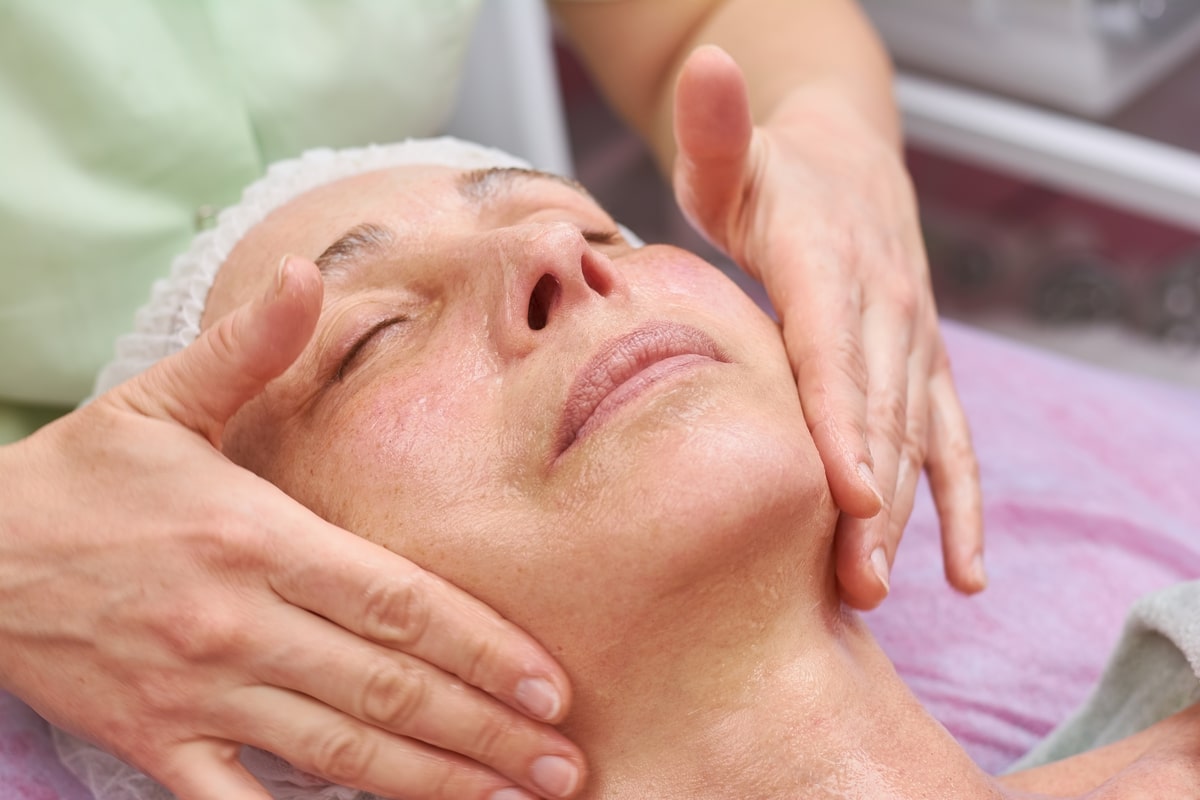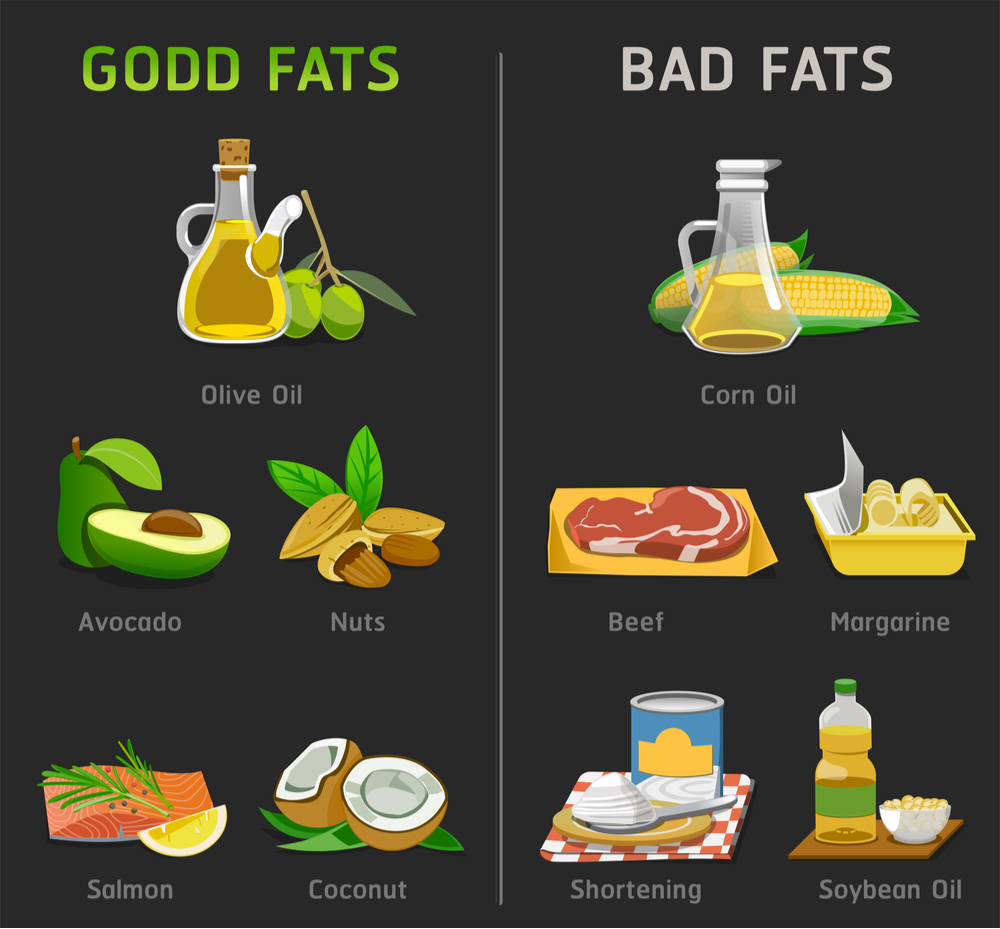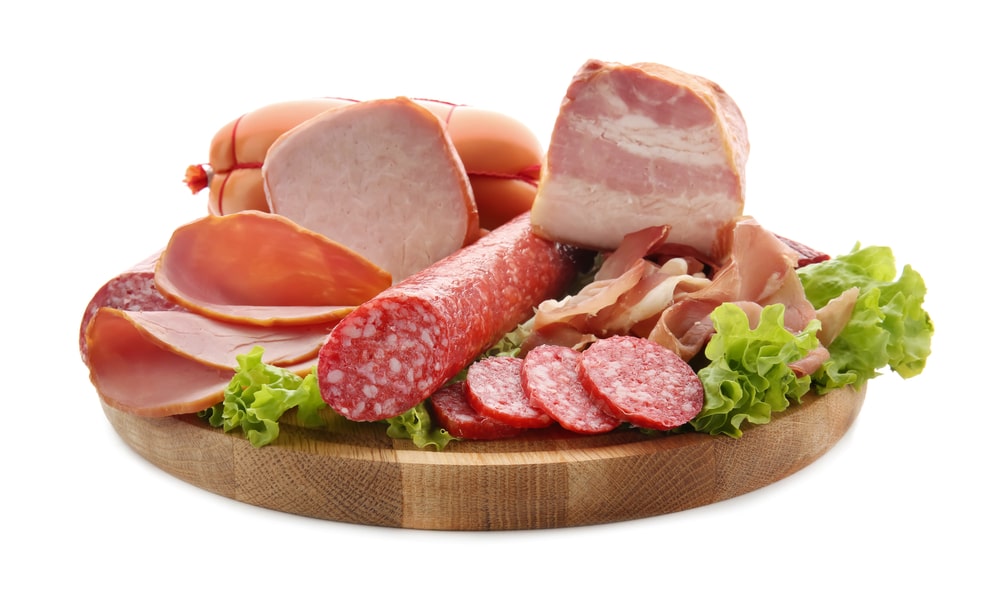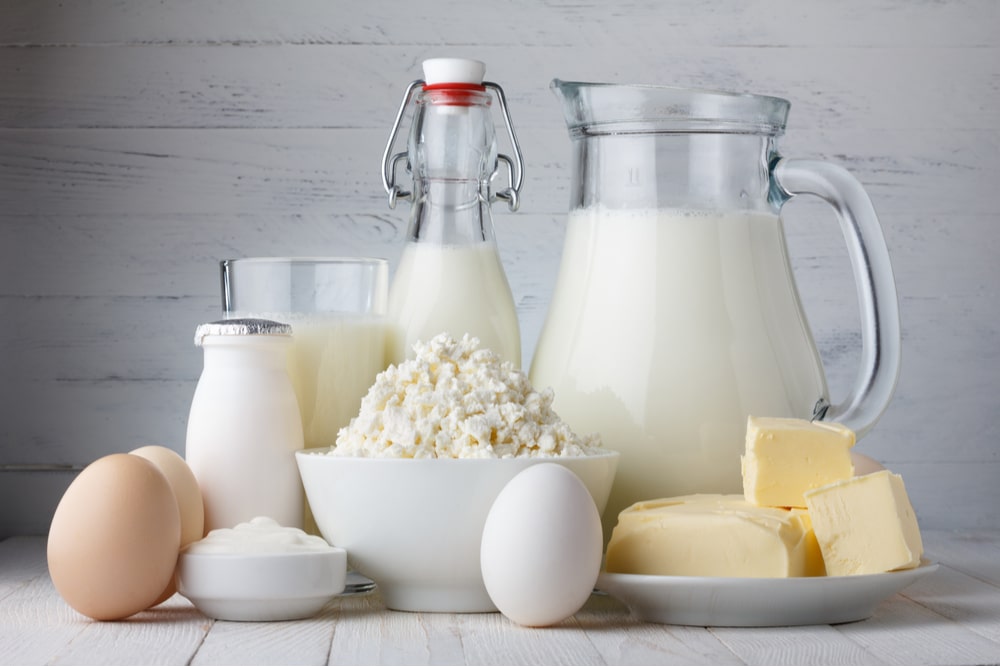
Certain foods can accelerate aging and affect your skin’s appearance. To keep your skin looking fresh and healthy, make an effort to steer clear of these foods…
1. Sugar

Sugar is one of the worst things we can eat — and it’s hard to avoid. Sugar, in one form or another, is added to nearly every processed food — including salad dressings and other foods that you may assume are healthy.
Sugar consumption is associated with a multitude of health issues, including a weakened immune system, weight gain, nutritional deficiencies, insulin resistance, a higher risk of cancer, type 2 diabetes, heart disease, fatigue, and more.
Sugar is also associated with accelerated aging.
- Sugar affects skin’s elasticity, leading to wrinkles and sagging skin.
- Sugar in the bloodstream attaches to fat and protein, forming harmful molecules known as advanced glycation end products. This process, known as glycation, makes protein fibers weak and stiff (1).
The protein fibers most at risk of glycation are collagen and elastin — the same ones that help make skin firm and tight. When collagen and elastin are bonded with sugar, they lose their strength and flexibility. This results in wrinkles, dull skin, and sagginess.
The presence of advanced glycation end products also makes skin more vulnerable to damage from other factors, such as environmental pollutants. The formation of advanced glycation end products can also lead to skin symptoms such as age spots, hyperpigmentation, inflammation, uneven skin tone, and tumors.
Clearly, it’s worth making an effort to cut sugar out of your diet. Most of us eat too much of it anyway. Get into the habit of reading food labels and avoid products with added sugars.
KEY TAKEAWAY: Choose complex carbohydrates — such as leafy greens, berries, and sweet potatoes — over refined carbs such as bread, pasta, and white rice. When possible, substitute natural sweeteners such as honey, which is loaded with antioxidants. Quit drinking soda and opt for water and green tea instead.
2. Fried Foods and Trans Fats

Some fats are great for your skin, like the healthy fats found in fatty fish, avocados, walnuts, coconut oil, olives, and sunflower seeds. Omega-3 fatty acids are good for the skin: they can help reduce acne, wrinkles, and oiliness. They can also help prevent the loss of collagen.
But many of the fats found in popular foods can damage your skin. It’s crucial to know the difference.
Many processed foods, fast foods, and baked goods are high in inflammatory omega-6 fatty acids. The average person’s diet contains far too many omega-6 fatty acids and not enough anti-inflammatory omega-3s.
This fatty acid imbalance can lead to symptoms such as dry skin, rough patches of skin, and small bumps on the back of your upper arms and legs.
KEY TAKEAWAY: To bring your fatty acids into balance, eat foods that are high in omega-3 fatty acids, such as salmon, flax seeds, chia seeds, and walnuts. Reduce your intake of foods that contain omega-6 fats and trans fats, including fast food, vegetable oils, packaged snacks, and flavored coffee creamers. Read ingredient labels and avoid any containing partially hydrogenated oils.
3. Processed Meats

The consumption of processed meats such as cold cuts, bacon, and hot dogs has been consistently linked with poor health. In fact, the World Health Organization has classified processed meat as a carcinogen (2).
Processed meats are also bad for the skin.
- They’re typically high in iodides, which are compounds that are linked to acne.
- They’re also inflammatory, which means they can have a damaging effect on the entire body.
Chronic inflammation is associated with oxidative stress, which plays a major role in the aging process. Oxidative stress can damage collagen fibers and contribute to skin diseases, including cancer (3).
KEY TAKEAWAY: To protect your skin, reduce your intake of inflammatory foods, including processed meats, and eat plenty of anti-inflammatory foods such as spinach, kale, berries, tomatoes, turmeric, green tea, avocados, olives, and olive oil.
4. Too Much Coffee

Don’t worry, moderate coffee consumption may be healthy. In fact, coffee contains antioxidants that are good for your health (4). But too much coffee can increase stress levels, which can lead to acne and other skin issues (5).
Plus, if you take your coffee with sugar, cream, or artificial creamers, you could be adding to damaging inflammation.
- Coffee is also a diuretic, which can contribute to dehydration.
- When skin is dehydrated, it produces more oil to compensate for the lack of moisture, and this can lead to dry patches, irritation, and breakouts.
KEY TAKEAWAY: It’s fine to drink coffee, but limit yourself to one or two cups, and try to drink it black. You could also add a teaspoon of anti-inflammatory coconut oil. Even better, try switching to green tea, which is full of beneficial antioxidants. And make sure you drink plenty of water throughout the day to stay hydrated.
5. Dairy Products

Much of the research around dairy is inconclusive. Studies have shown a link between dairy and acne, but it’s unclear whether acne is actually caused by dairy or something else, such as the sugar content in dairy products (6).
However, many people find that cutting dairy out of their diet has a positive effect on their skin.
- Dairy is inflammatory, and it’s usually full of hormones, which may trigger breakouts.
KEY TAKEAWAY: If you continue to experience acne as you age, try removing milk and cheese products from your diet to see if your skin improves.
Healthy Habits for Skin and Health

The skin is the largest organ in the body, and its health is closely linked to the health of other bodily systems. In general, anything that is good for the rest of the body is good for your skin.
- Make an effort to eat a healthy diet,
- get enough sleep,
- exercise,
- drink plenty of clean water,
- reduce stress with practices such as meditation,
- use natural products which benefit skin.
Have you cut out these foods from your diet? Please comment with your results below…

Karen Eisenbraun is a Certified Holistic Nutrition Consultant who has been writing about natural health and wellness for more than 10 years. Her first blog, which was focused on holistic health and natural skincare, earned her recognition as a Top Health Blogger for Wellsphere’s Healthy Living Community and was also listed as #6 on the Top 100 Online Holistic Nutrition Resources.